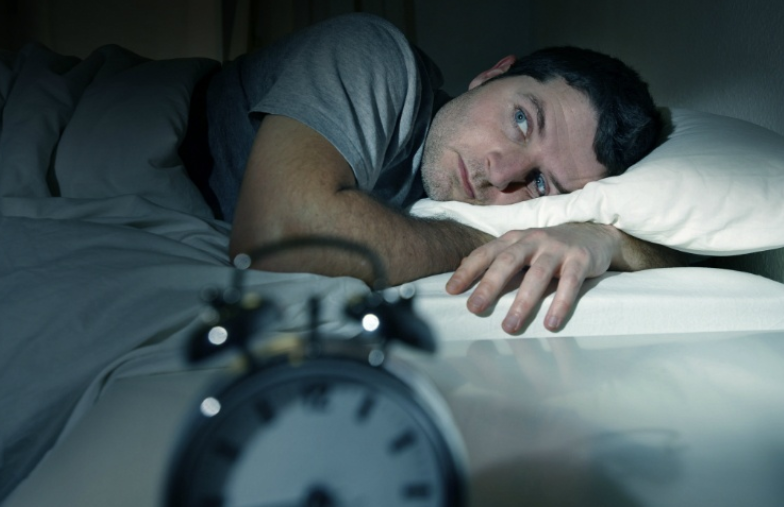The research into the effects of CBD on your body is relatively new, but it has been used throughout history to treat many ailments, with very few risks of side effects. This may be why so many people rely on CBD (cannabidiol) to replace or supplement their treatment for pain, anxiety, sleep disorders, and seizures. Furthermore, you might be pleased to learn that you can also ease insomnia with water-soluble CBD. But what is water soluble CBD? Put simply, water-soluble CBD describes cannabinoid compounds that can dissolve in water. Consequently, taking water-soluble CBD is one of the fastest and easiest ways to make use of this particular cannabinoid compound. This makes water-soluble CBD a popular choice for people living with sleep disorders who need a quick form of relief. So, let us now explore the potential uses of CBD products for people dealing with insomnia on a regular basis.
The Potential Causes of Insomnia
If you cannot fall asleep easily or stay asleep during the night, you may have insomnia. While you have the option to use one of the many medications available to treat insomnia; they aren’t right for everyone. Insomnia can be chronic or episodic and has many causes.
- Anxiety or depression
- Chronic Pain
- Neurological Disorders (like Parkinson’s disease)
- Restless leg syndrome
- Gastrointestinal disturbances
- Menopause
- Some Medications
- Poor sleep schedule
Research suggests that cannabidiol (CBD) has the potential to treat insomnia and other sleep disorders. To understand how CBD alleviates insomnia, we need to delve a bit into how and why your body reacts to CBD.
A New Field of Study: The Endocannabinoid System
You have an endocannabinoid system (ECS) that is responsible for the regulation of many important system functions, including pain perception, emotional responses and sleep regulation. Your endocannabinoid system is controlled by a complicated network of neurotransmitters (messengers) and receptors. The two main cannabinoids your body produces are anandamide and 2AG (2- arachidonoyl).
You also have two receptors that initiate a response, CB1 and CB2. CB1 Receptors are mostly found in your brain, spinal column and nerve endings, while CB2 receptors populate your peripheral nervous system and your immune cells.
CBD Reacts with Your Endocannabinoid System
CBD is also a cannabinoid. It is exogenous, meaning it occurs from a source outside of your body (the cannabis plant). Since CBD is extracted from the hemp plant, it does not contain THC, the compound in marijuana that causes the intoxicating effects. That is why CBD is legal and available for purchase as a dietary supplement.
How CBD Eases Insomnia
The endocannabinoids your body produces on its own are produced as needed, and quickly broken down by enzymes. Since CBD is an exogenous cannabinoid, the effects on your receptors are stronger and last longer. CBD eases Insomnia in several ways.
- Relief from Anxiety: The standard pharmaceutical treatments for anxiety and depression increase the amount of serotonin the body by preventing the reabsorption of serotonin, to keep more serotonin available. CBD works in much the same way by increasing serotonin levels, reducing stress, anxiety and depression. This helps your body relax so you can fall asleep easily.
- Relief from Pain: CBD also inhibits the absorption of anandamide by blocking the enzyme that breaks it down. When you have more anandamide in your system, you feel less pain. Since pain often keeps people from falling asleep or staying asleep, pain relief encourages sleep.
- Affects REM Sleep: Many people with Parkinson’s disease experience REM behavior disorder. Typically, in REM sleep, your body is predominantly immobilized to keep you from physically reacting to dreams. In REM behavior disorder this immobility does not occur properly, and those with Parkinson’s are free to move. CBD helps balance this function and is also shown to improve REM sleep in those with Post-Traumatic Stress Disorder (PTSD).
Since your endocannabinoid system is also responsible for immune function and inflammation, temperature regulation and digestive processes, CBD may also be beneficial if your insomnia is caused by a disturbance in any of these functions.
CBD is a dietary supplement, not a medication, so no medical claims about the benefits of CBD can be made at this time. But so far, the preliminary studies on the benefits of CBD are fascinating. CBD works with your endocannabinoid system to ease insomnia and improve your quality of sleep.
About Author: CBDfx is the industry leader in full-spectrum CBD products ranging from oils and tinctures, to gummies, vape pens, and much more. As word about CBD spreads and the market fills with countless options for CBD dosing, CBDfx stands alone as a company committed to the ideals of organic sourcing and customer service based around honest human-to-human communication.

